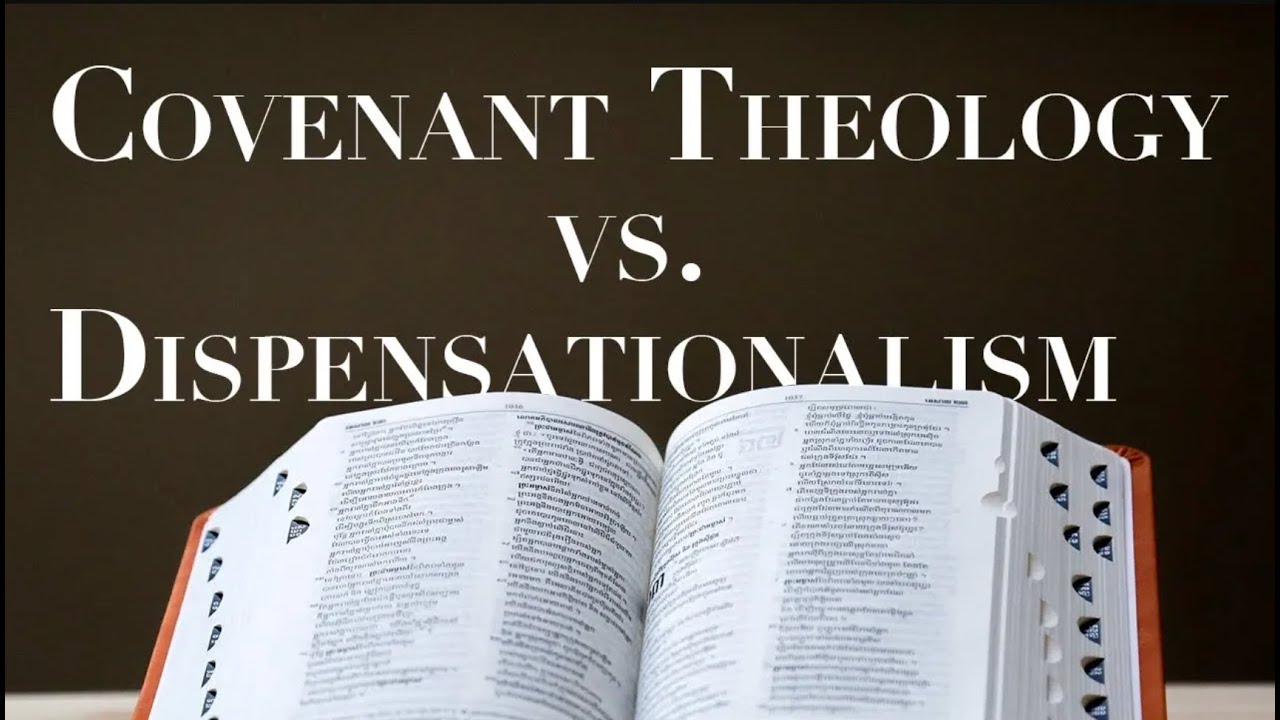Within the realm of Christian theology, there exists a profound debate between two prominent frameworks: dispensationalism and covenant theology. These theological perspectives offer distinct lenses through which believers interpret scripture, understand God’s plan for humanity, and discern the relationship between the Old and New Testaments. Rooted in differing hermeneutical approaches and theological emphases, the debate between dispensationalism and covenant theology is not merely an academic exercise but has profound implications for Christian belief and practice.
Understanding Dispensationalism:
Dispensationalism, as a theological framework, gained significant traction in the 19th century, particularly through the teachings of John Nelson Darby and the Scofield Reference Bible. At its core, dispensationalism divides human history into distinct periods or “dispensations,” each marked by a unique revelation from God and a corresponding set of responsibilities for humanity. Central to dispensationalism is the belief in a strict literal interpretation of scripture, especially regarding prophecy and the future restoration of Israel.
Dispensationalists typically identify seven dispensations, including innocence, conscience, human government, promise, law, grace, and the millennial kingdom. Each dispensation is understood as a stage in God’s progressive revelation and plan for humanity, culminating in the reign of Christ during the millennium. Dispensationalists emphasize the sharp distinction between Israel and the Church, viewing God’s promises to Israel as distinct from those to the Church. This theological framework often leads to a premillennial eschatology, anticipating a future period of tribulation followed by Christ’s literal reign on earth.
Exploring Covenant Theology:
In contrast, covenant theology approaches scripture through the lens of God’s overarching covenants with humanity, particularly the covenants of works, grace, and redemption. Developed within Reformed theology, covenant theology emphasizes the unity of God’s plan throughout history, viewing the biblical narrative as progressively unfolding within the context of God’s covenants. Unlike dispensationalism, covenant theology does not delineate history into discrete dispensations but instead emphasizes the continuity of God’s covenantal relationship with His people.
Central to covenant theology is the belief in a unified people of God, comprising both Old Testament Israel and the New Testament Church. This theological framework emphasizes the fulfillment of Old Testament promises in Christ and the spiritual blessings shared by believers, regardless of ethnic or national identity. Covenant theologians interpret Old Testament prophecies and promises as finding their ultimate fulfillment in Christ and the Church, rather than in a future restoration of national Israel.
Points of Contention:
The debate between dispensationalism and covenant theology revolves around several key points of contention, including the interpretation of prophecy, the relationship between Israel and the Church, and the nature of God’s redemptive plan. Dispensationalists argue for a strict literal interpretation of prophecy, particularly regarding the restoration of Israel and the millennial kingdom. Covenant theologians, on the other hand, interpret such prophecies through a Christocentric lens, seeing their fulfillment in Jesus Christ and the Church.
Moreover, dispensationalism’s sharp distinction between Israel and the Church has significant implications for eschatology, ecclesiology, and soteriology. Dispensationalists often posit a future distinction between God’s plan for Israel and His plan for the Church, leading to a premillennial understanding of Christ’s second coming and a belief in a pre-tribulation rapture of the Church. In contrast, covenant theologians emphasize the unity of God’s people throughout history, seeing both Israel and the Church as partakers of God’s covenant blessings through faith in Christ.
Furthermore, the theological frameworks of dispensationalism and covenant theology shape believers’ understanding of salvation and the role of the Law in the life of the believer. Dispensationalists typically emphasize a sharp contrast between law and grace, viewing the Mosaic Law as distinct from the New Covenant inaugurated by Christ. Covenant theologians, however, see the Law as a reflection of God’s moral character and emphasize its continuity within the New Covenant community, albeit fulfilled in Christ’s perfect obedience.
Implications for Christian Faith and Practice:
The debate between dispensationalism and covenant theology extends beyond mere theological abstraction and carries profound implications for Christian faith and practice. These theological frameworks shape believers’ understanding of God’s redemptive plan, the nature of the Church, and the interpretation of scripture. Moreover, they influence perspectives on evangelism, missions, and eschatology, impacting how Christians engage with the world and anticipate the consummation of God’s kingdom.
For many believers, the choice between dispensationalism and covenant theology represents more than an intellectual exercise; it reflects deeply held convictions about the character of God, the interpretation of scripture, and the nature of Christian identity. While both frameworks offer valuable insights into God’s revelation and plan for humanity, each carries its emphases and theological presuppositions. Thus, Christians are called to engage in rigorous study, prayerful reflection, and humble dialogue as they navigate the complexities of theological debate.
Conclusion:
In the tapestry of Christian theology, the contrasting threads of dispensationalism and covenant theology contribute to a rich and nuanced understanding of God’s revelation and redemptive plan. While these theological frameworks differ in their interpretation of scripture, the nature of God’s covenantal relationship with humanity, and the trajectory of eschatological fulfillment, they both reflect a sincere desire to faithfully interpret God’s word and proclaim the gospel message.
As Christians navigate the complexities of theological debate, they are called to humility, charity, and a commitment to the primacy of scripture. While differences may persist, believers are united in their confession of Jesus Christ as Lord and Savior, and their shared mission to proclaim the good news of salvation to all nations. In this spirit of unity and love, may Christians engage with one another respectfully, seeking truth, and embracing the mystery of God’s unfolding plan for His people.

